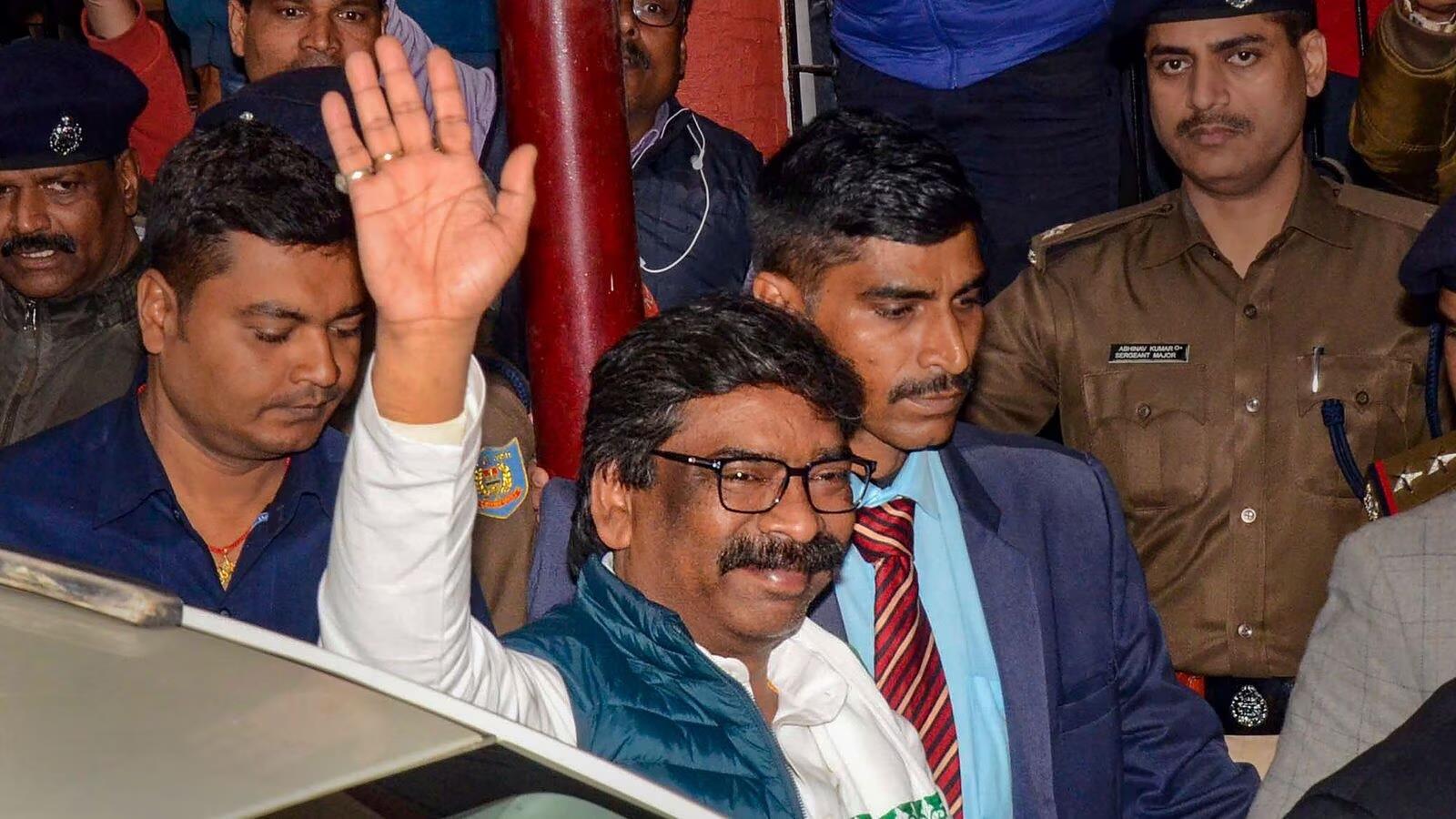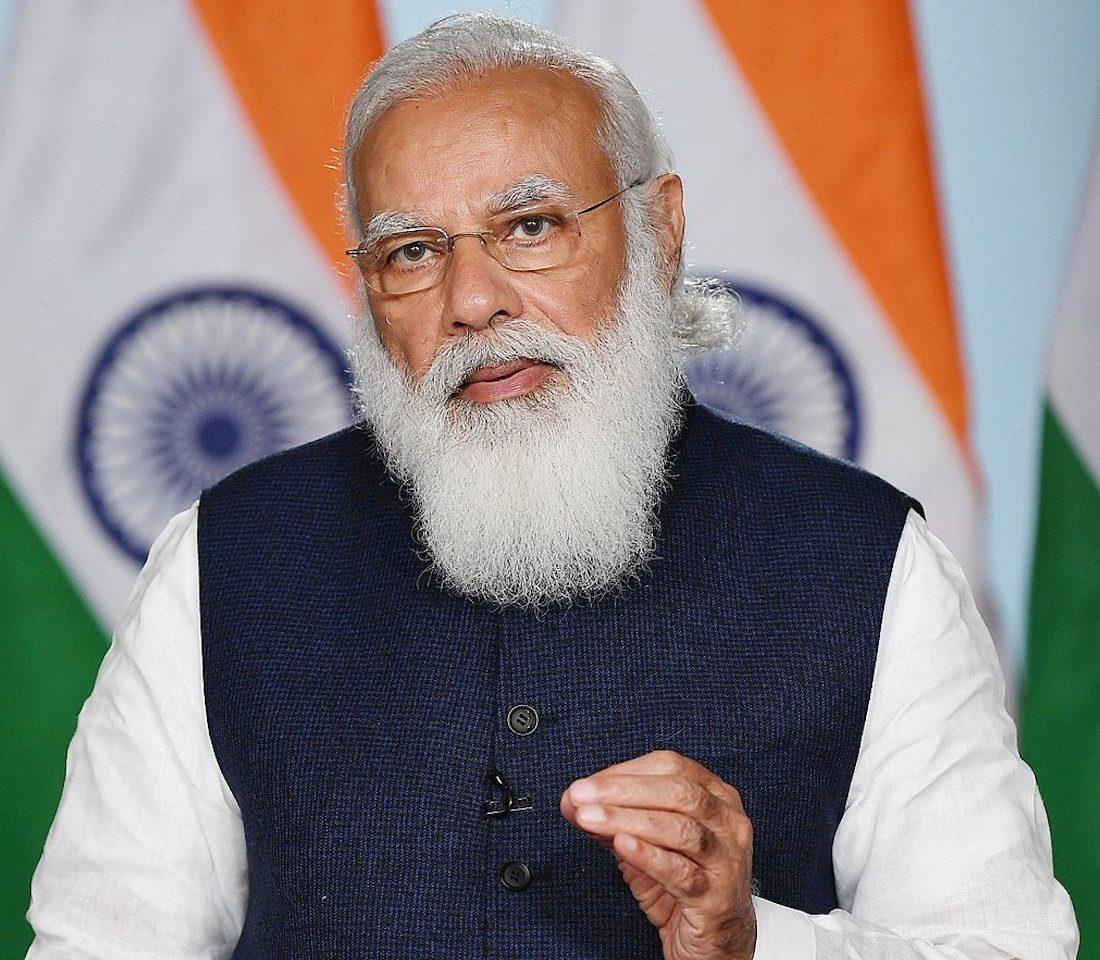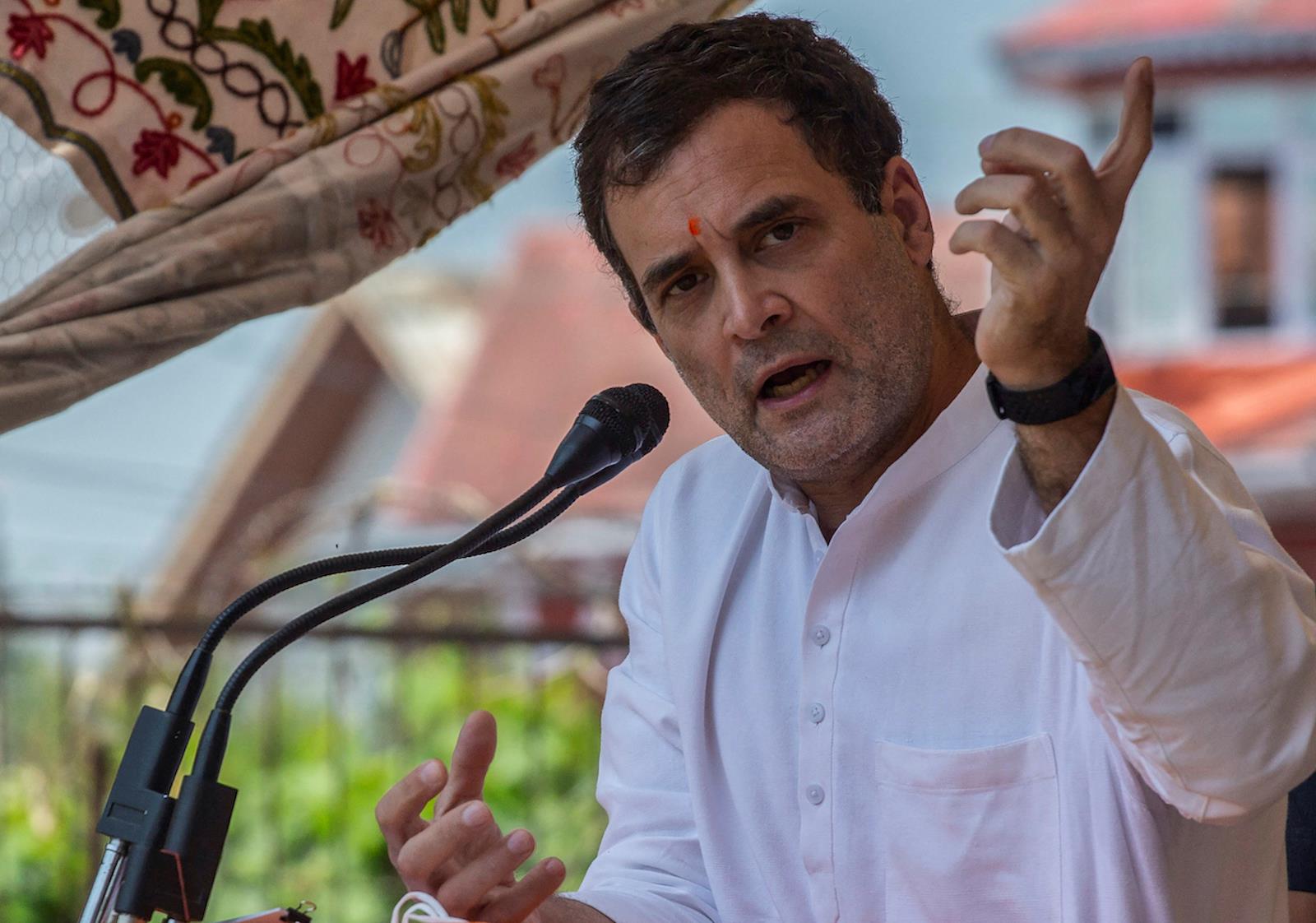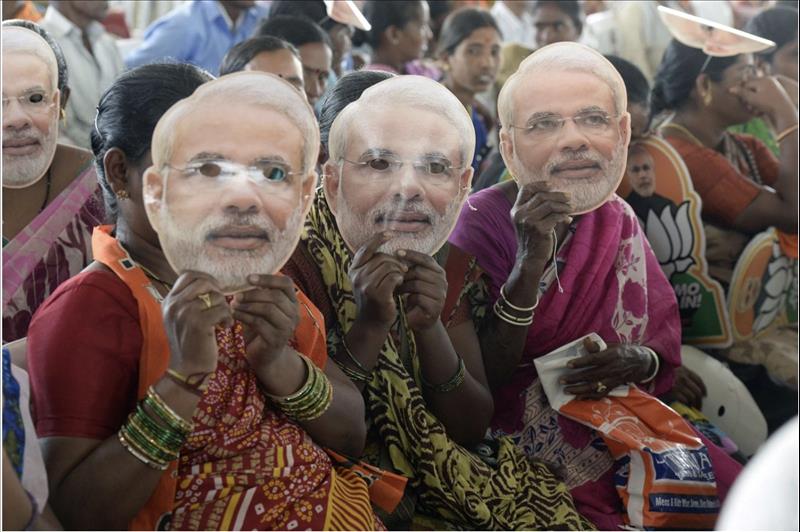
India Heads To The Polls As A Much Lesser Democracy
On February 18, in his speech at the National Council of the Bhartiya Janata Party (BJP), the prime minister confidently stated that despite the polls being months away, he was already receiving invitations from other nations for events after the elections, suggesting widespread anticipation of his return to power.
Moreover, he boldly proclaimed that the ruling alliance would secure more than 400 seats in parliament, a majority rarely witnessed in Indian politics.
While his supporters claim Modi's popularity and his party's perceived integrity allow for such audacious predictions, the opposition argues that the prime minister's confidence stems from his government's tightening stranglehold on the nation's democratic institutions, law enforcement agencies and even media.
On March 20, one of the opposition's principal leaders, Delhi's Chief Minister Arvind Kejriwal, was arrested on corruption charges lodged by the central government's anti-corruption agency.
Kejriwal is the second chief minister to have been arrested by the central agency in the last two months. Only last month, Jharkhand Chief Minister Hemant Soren was arrested by the Enforcement Directorate hours after his resignation.

Jharkhand Chief Minister Hemant Soren was arrested by the Enforcement Directorate hours after his resignation. Photo: PTI / Mint / X Screengrab
While the cases of the Jharkhand and Delhi chief ministers are the most high-profile, they are not the only ones where the Enforcement Directorate has gone after politicians who oppose the Modi government.
In many states across India, politicians with corruption cases against them have defected and joined the ruling party – and then the cases against them have seemed to slowly disappear.
This is probably why opposition and government critics claim that the government is arm-twisting opponents into defection . Those who do not defect face summonses from the Enforcement Directorate and – in many cases like those of the Delhi and Jharkhand chief ministers – prison time.
Only last year, opposition leader Rahul Gandhi was suspended from the lower house of parliament after the High Court of Modi's Home state, Gujarat, declared him guilty in a flimsy defamation case . It took the Supreme Court of India to legally rescue the opposition leader by overturning the politicized decision, allowing Rahul to return to parliament.
These cases clearly highlight the challenges currently faced by dissenting voices in India.

How China's Volt Typhoon hackers target US infrastructure

Rickover's and airmail pilots' disaster avoidance method

A Polish general dies deep in Ukraine
As recently as the first week of March, it was brought to public notice that the BJP was the largest recipient in an electoral bond scheme that allowed anonymous donations to political parties.
Data released on orders of the Supreme Court showed that the BJP received around 50% of all the electoral bonds sold while the principal opposition party, Congress, garnered under 10%. This news, which might well have caused a massive political stir in a functional democracy, generated very little meaningful debate on Indian television and print media.
Attention swiftly shifted as the government announced the implementation of the controversial Citizenship Amendment Act , which enables persecuted religious minorities from India's neighboring countries to expedite the process of acquiring Indian citizenship.
However, the Act left out Muslims from the list of religious minorities that can be speedily granted citizenship and makes religion a factor for consideration in acquiring Indian citizenship for the first time in the country's independent history.
Many see the announcement of the CAA's implementation, as well as the arrests of opposition leaders, as components of a deliberate government distraction tactic to shift public attention away from the controversial electoral bonds findings.
With money, muscle, media and central agencies on the BJP's side – and not to discount Modi's genuine popularity, especially among majority Hindu voters, the party seems to be in clear control in several states at the upcoming elections, although within such states there are still provinces where its candidates are expected to face formidable challenges.

India's Prime Minister Narendra Modi. Photo: WikiCommons
The BJP is comfortably in command in northern India's larger states. That's particularly true Uttar Pradesh, where the consecration ceremony of a grand temple in January this year, at the site of a mosque that was demolished by a right-wing mob in 1992, took the form of a cultural festival. Uttar Pradesh has 80 parliamentary constituencies and is thus the most important state in national elections.
Madhya Pradesh, another major state with 29 seats in the national assembly, also proved a to be a bastion for the BJP when it was comfortably returned to power in the state assembly election last year after many analysts had predicted a tough fight.
Rajasthan, where the BJP came to power after defeating a popular chief minister, is also a site where the ruling party hopes to perform well at the upcoming election. Gujarat, the home state of both the prime minister and home minister, has been a stronghold state for the ruling party for decades and no trends suggest any significant changes there.
Outside these larger states, the BJP is also successfully forging alliances with the locally dominant political parties in the smaller states of India's northeast. Nevertheless, there are several states where the BJP did spectacularly well in the previous national elections but may face significant challenges in the upcoming parliamentary polls.
In the state of Bihar, Lalu Yadav's Rastriya Janata Dal (RJD) has
regained prominence
in recent years. While the BJP had managed to get former Chief Minister Nitish Kumar of Janata Dal (United) to abandon his alliance with the RJD and put
his weight behind
the ruling party, that seems only to have added to the RJD's popularity.
Another major state, West Bengal has been the stronghold of the Mamata Banerjee-led Trinamool Congress (TMC) for a very long time and has been a thorn in the BJP's side.
The southern states remain the BJP's weakest political spot. Even though the party has sought to make inroads in the five southern states, it doesn't appear to be posied to pose any serious challenge to the regional parties prominent in Kerala, Tamil Nadu, Andhra Pradesh and Telangana, and to Congress in the state of Karnataka.
Karnataka was the only state where the BJP had been in power recently at the state level, but it had to bow out after a comprehensive defeat at the hands of Congress in 2023. Many had then seen Congress's triumph in Karnataka as a possible turning point for the once-powerful party's electoral fortunes but that has not been the case.
In the past two elections, the BJP has employed a highly effective strategy against Congress by systematically discrediting the main opposition leader. Television in particular has portrayed Gandhi as an undeserving leader lacking political acumen and intelligence.

Sign up for one of our free newsletters
- The Daily ReportStart your day right with Asia Times' top stories AT Weekly ReportA weekly roundup of Asia Times' most-read stories
This concerted effort to undermine the opposition leader has yielded substantial political dividends for the BJP, leaving even government critics grappling with the question,“If not Modi, then who?”

Rahul Gandhi gestures while addressing party members and workers in Srinagar on August 10, 2021. Photo: Asia Times files / AFP / Abid Bhat
After enduring a decade of electoral setbacks attributed to his perceived lack of leadership, Gandhi managed to shed the label of a naive politician through bold initiatives such as the Bharat Jodo Yatra, a 3,000 kilometer march across the country in 2022 that served as an anti-BJP rallying cry for national unity.
Despite the BJP's best discrediting efforts, Gandhi has succeeded in asserting himself as a serious political contender, demanding attention and recognition on the national stage.
While mainstream Indian media may perceive Modi's victory in the upcoming 2024 national elections as a foregone conclusion, several factors suggest it's not a done deal. Despite the BJP's hold in certain regions, challenges persist, including its vulnerability in the southern states, accusations of corruption and opposition from regional parties. The emergence of a more credible opposition leader may also tilt the scales against the BJP.
The BJP's adept use of fueling antagonism against minorities, fostering hyper-nationalism, implementing welfare measures and projecting an aura of Hindu dominance has proven to be a potent political formula. And the incarceration of opposition leaders, coupled with the swift implementation of major legislative and constitutional changes without adequate debate, raises apprehensions of democratic backsliding and institutional erosion.
As India's elections approach and Modi's BJP ahead in the polls, the nation's democracy itself is seemingly at stake.
Bilal Ahmad Tantray is a PhD candidate at Shiv Nadar University.
Thank you for registering!
An account was already registered with this email. Please check your inbox for an authentication link.

Legal Disclaimer:
MENAFN provides the
information “as is” without warranty of any kind. We do not accept
any responsibility or liability for the accuracy, content, images,
videos, licenses, completeness, legality, or reliability of the information
contained in this article. If you have any complaints or copyright
issues related to this article, kindly contact the provider above.

















Comments
No comment